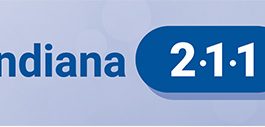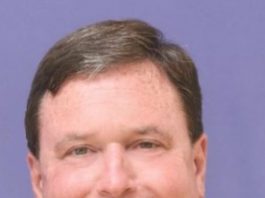Marilyn Odendahl for www.theindianalawyer.com
In its overhaul of the U.S. patent system, the America Invents Act has been criticized for favoring large corporations over garage inventors, workshop innovators and small entrepreneurs.
Individuals who develop what could be the next great thing are at a disadvantage under the AIA’s first-to-file rule. Now, instead of being protected by the first-to-invent standard, which awarded the patent to the inventor regardless of when the application was submitted, independent innovators must race to the patent office or they could lose the rights to their idea.
The biggest obstacle to filing a patent application is the cost. It is a complicated, time-consuming and expensive process that usually requires the assistance of an attorney and can run into the thousands of dollars.
Under a mandate from Congress to help independent inventors, the U.S. Patent and Trademark Office started opening patent hubs around the country. Most recently, the federal agency tapped the Center for Intellectual Property Research at Indiana University Maurer School of Law to be the hub serving Indiana.
Essentially, the patent hub is a matchmaking service, said Norman Hedges, director of the Intellectual Property Law Clinic at IU Maurer. Inventors looking for help filing a patent application and IP lawyers searching for volunteer opportunities will be matched together to potentially begin a client-attorney relationship.
The hub, dubbed Patent Connect for Hoosiers, was unveiled Sept. 1 as part of IU Maurer’s Launch IP event at Eli Lilly and Co. headquarters in Indianapolis. IU Maurer’s IP faculty was joined by Christal Sheppard, director of the USPTO Midwest Satellite Office, and IP attorneys.
Both the law school’s IP clinic and the hub were lauded as meeting a need among small-business owners and helping Indiana’s economy grow.
“What you’re doing here is really (providing) the missing link that we’ve not been able to figure out statewide,†said keynote speaker Lt. Gov. Sue Ellspermann. “Putting those legal services (to work getting) trademarks, patents and helping in that commercialization of products is so important.â€
Clinical attraction
The IP clinic first attracted the patent office to IU Maurer.
Traditionally, law school clinics provide hands-on experience for students in areas like family law, criminal justice and immigration. Intellectual property is not typically a clinical focus, but Mark Janis, director of the IU Maurer Center for Intellectual Property Research, argued that any nationally distinguished IP program should have a clinic.
Janis and former interim dean Hannah Buxbaum crafted a plan to start the clinic on a limited scale with funding from the law school and the IU Office of the Vice Provost for Research.
With the addition of Hedges, who developed the clinic to mimic a law firm, second- and third-year students help clients with their patent applications. The students get real-life experience with the patent process along with being mentored and having the chance to learn from their mistakes before they enter private practice.
“It’s absolutely giving them practical experience,†said Jessica Van Dalen, adjunct professor at the clinic. “A lot of the things they struggle with are things I struggled with either as a summer associate or as a first-year associate.â€
Clients of the clinic have included individual inventors and small startup companies as well as referrals from the Crane Division of the Naval Surface Warfare Center in southern Indiana and the Indiana Small Business Development Center. It has also connected with students and faculty who are creating new products at the Purdue Foundry.
In January 2014, the clinic became part of the USPTO’s Law School Clinic Certification Pilot Program. It was certified in both patents and trademarks, one of only 18 law schools to gain a dual designation. The clinic must comply with the rigorous standards imposed by the pilot program, but a bonus is that the students are eligible to receive a temporary registration number to practice before the patent office.
Partnering with the USPTO on the patent hub was a natural extension of the clinic relationship. The hub operation integrated well with the clinic work and made IU Maurer one of only a handful of law schools running both an IP clinic and a patent hub.
IU Maurer Dean Austen Parrish said having both means two things for the Bloomington law school. They provide IP students with an experiential training, and they support the innovation economy in the state.
Although Indiana is not often lumped in with Silicon Valley or the North Carolina Research Triangle, Parrish said the innovation community here is doing great things. All that activity is creating a high demand for services offered by the clinic and the patent hub.
“I think legal services for entrepreneurs is something startups desperately need,†Parrish said. “There’s a massive demand for it. (The clinic and the hub are) going to have trouble, I think, making sure they can handle the workload.â€
Connecting at the hub
The clinic and the hub are a one-stop shop for entrepreneurs in Indiana who need patent representation, Janis said. Some clients will be directed to the clinic, and others will be matched with attorneys offering their services pro bono through the hub.
IU Maurer has created a website, www.patentconnect.org, which will serve as the intake center for inventors needing help and attorneys wanting to volunteer their services. The hub will screen the inventors, allowing only those who qualify economically and have viable products into the network.
Once the website identifies a potential match, the attorney can either accept or decline. If the match is accepted, the hub steps out of the process and leaves the attorney and client to form a direct business relationship.
Van Dalen, who is also an IU Maurer 2010 graduate, accepted a pro bono client through Patent Connect for Hoosiers. An associate at Faegre Baker Daniels, Van Dalen often works with corporate entities, but the volunteer opportunity came with a higher level of excitement.
“Everyone is excited about their inventions, but for big corporations it can be a little more routine,†she explained. “I think there are times when some of that enthusiasm is sort of lost in the shuffle a little bit. … There is definitely a level of enthusiasm that single inventors have that I think can be lost on the bigger clients at times.â€
Van Dalen’s client saw a need for storage containers that could be used around a house or for outside activities like picnics. Initially starting a business focusing on these containers, the client had enlisted a law firm. But recognizing the cost going forward, the inventor sought help from the patent hub.
Van Dalen and her colleagues at FaegreBD have filed an application for the client and have plans to continue representation through the entire process.
“It’s very exciting to see how enthusiastic they are not only about their invention, but also about the thought of their business going forward and how they maybe will make a difference in a community,†she said. “It’s so rewarding.â€â€¢



